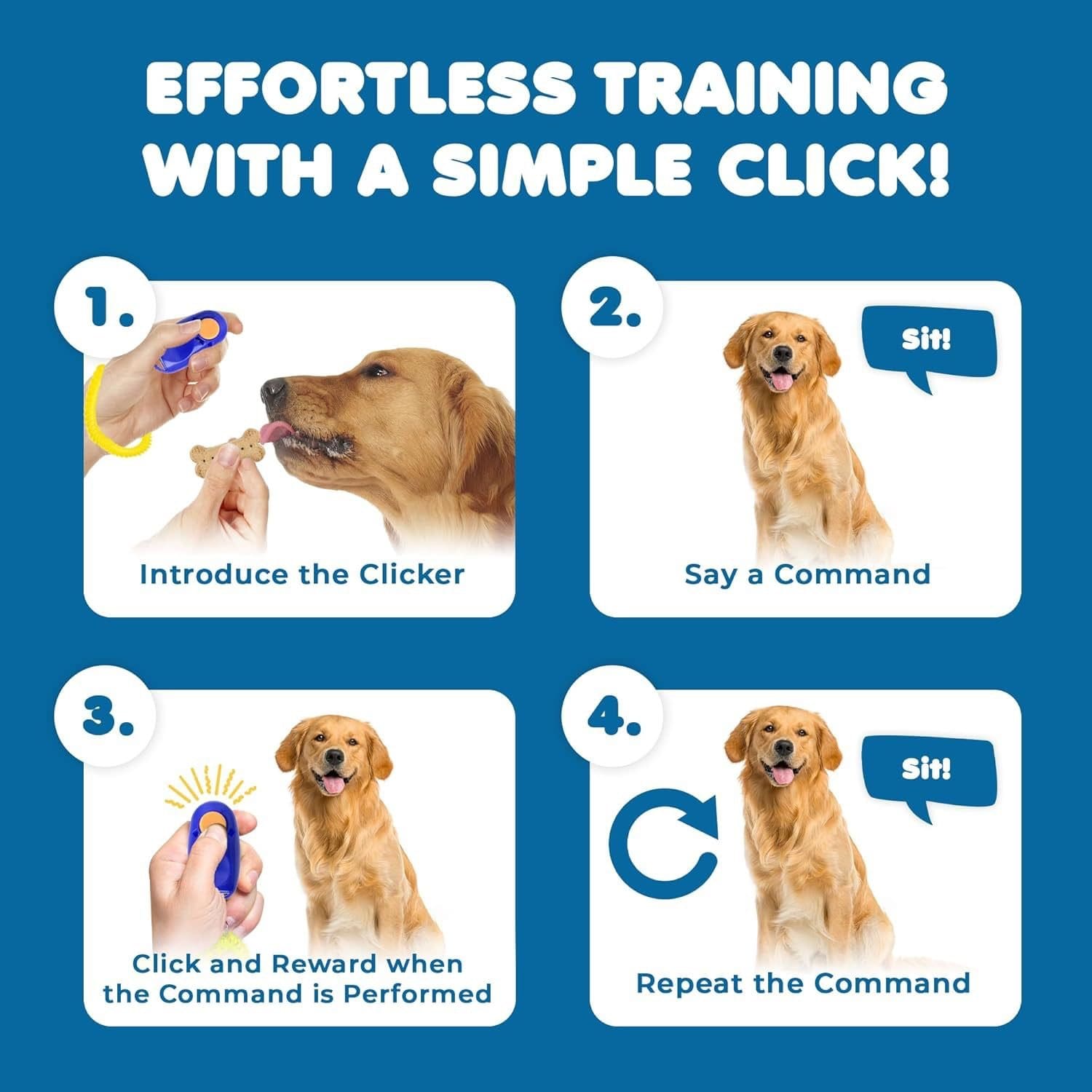
Training a puppy is one of the most rewarding aspects of pet ownership. Among the various training methods available, clicker training has emerged as one of the most effective, humane, and scientifically backed approaches. This method uses positive reinforcement to shape a puppy’s behavior, helping them learn commands and behaviors quickly while strengthening the bond between the dog and the owner.https://www.amazon.com/SunGrow-Dog-Clickers-Wrist-Bands
Clicker training is a method based on operant conditioning, a learning process where an animal associates a behavior with a consequence. The clicker itself is a small handheld device that makes a distinct clicking sound when pressed. This sound serves as a marker to tell the puppy that they have performed the desired behavior correctly and that a reward (typically a treat, praise, or toy) will follow. By consistently pairing the click with a reward, the puppy learns to repeat the behaviors that lead to positive outcomes.
Clicker training is simple, but consistency is key. Below are the basic steps to begin:
The advantages of clicker training extend beyond simple obedience training. This method offers a range of benefits for both puppies and their owners.
Dogs do not understand human language, but they can learn to associate actions with outcomes. The clicker provides an unmistakable signal that pinpoints exactly when the puppy has performed the desired action, reducing confusion.
Clicker training is based on positive reinforcement rather than punishment. Puppies respond well to rewards and will be more eager to engage in training sessions, creating a positive and enjoyable learning experience.
Since the click is immediate and precise, puppies can learn commands and behaviors faster than with verbal praise alone. They also retain these learned behaviors more effectively because the training is consistent and engaging.
Training sessions with a clicker encourage interaction and engagement, fostering trust and a stronger bond between the puppy and the owner. The puppy learns that their owner is a source of guidance and rewards.
Positive reinforcement helps puppies develop confidence. Instead of fearing punishment for making mistakes, they learn to experiment and engage in training, which can be especially beneficial for shy or anxious puppies.
Training is not just about obedience—it’s also a form of mental exercise. Clicker training engages a puppy’s brain, preventing boredom and reducing destructive behaviors caused by lack of stimulation.
Clicker training allows puppies to figure out which behaviors lead to rewards. This encourages independent thinking, making it easier for them to learn new commands and tricks in the future.
While clicker training is highly effective, certain common mistakes can slow progress.
Each click should be followed by a reward. If you click without offering a treat or praise, the puppy may lose the connection between the click and the positive reinforcement.
Timing is crucial in clicker training. Clicking too early or too late can confuse the puppy about which behavior is being reinforced.
Once a puppy has learned a behavior, the clicker should be phased out, and intermittent reinforcement (treats and praise) should be used instead. The goal is to have the puppy obey commands without relying on the clicker long-term.
The clicker should only be used to mark behaviors, not to call a puppy or get their attention. Using it incorrectly can reduce its effectiveness.
Clicker training is an effective and humane method that enhances a puppy's ability to learn, strengthens the bond between owner and pet, and promotes positive behaviors. By using precise communication and positive reinforcement, clicker training makes learning enjoyable for puppies, helping them grow into well-mannered and confident dogs. Whether you are teaching basic commands, shaping new behaviors, or correcting unwanted habits, clicker training provides a reliable and rewarding approach to puppy training.